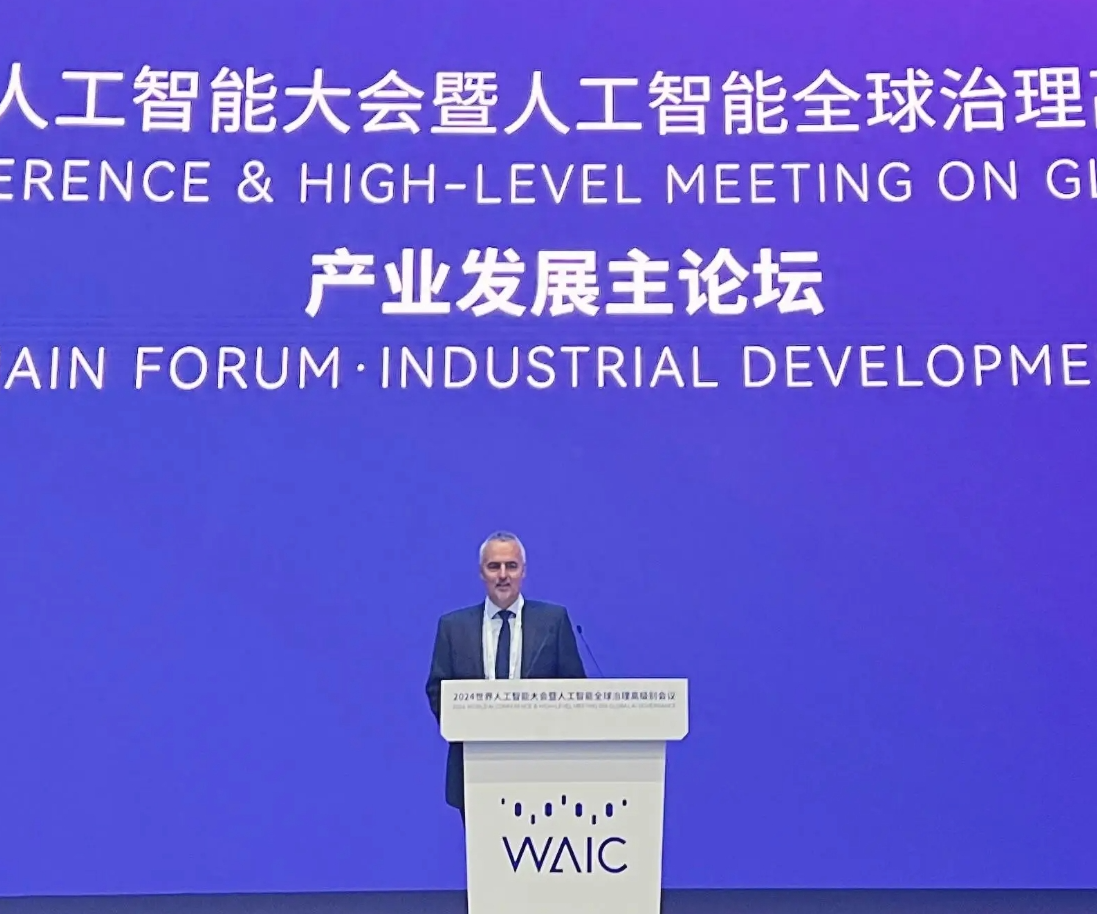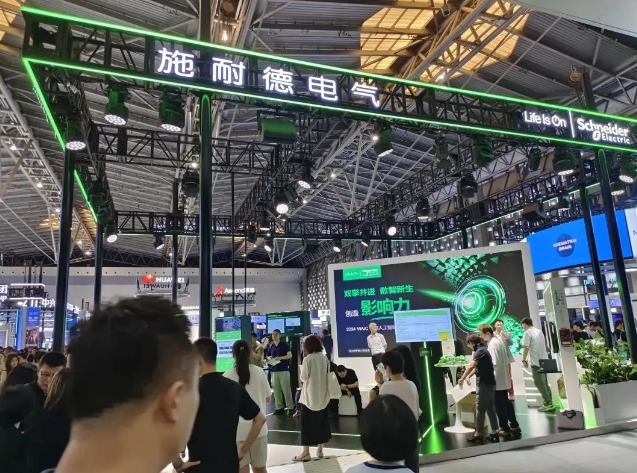A global artificial intelligence event has once again kicked off by the Huangpu River. The World Artificial Intelligence Conference (WAIC), which has attracted global attention, has entered its seventh year. Schneider Electric is an old friend of this event. For it, WAIC is not only a stage to showcase the achievements of exploration and practice, but also a platform to deepen industrial exchange and cooperation.
Schneider Electric has always focused on the application of the new generation of artificial intelligence in industry scenarios based on the integration of electrification, automation, and digitization technologies, fully leveraging the dual engine advantages of "technological innovation" and "ecological innovation" to help Chinese industries promote the "dual transformation" of digitization and greening.
In Schneider Electric's view, large-scale applications are the future of artificial intelligence. Peter Weckesser, Global Executive Vice President and Chief Digital Officer of Schneider Electric, said in his keynote speech at the Industry Development Forum, "Schneider Electric believes that the era of large-scale application of AI technology has arrived, which will help industries reduce costs and increase efficiency, and promote green development in society The ultimate goal of technology is to empower people, and Schneider Electric's vision is to continuously strengthen research and development innovation, deepen ecological collaboration, empower more Chinese enterprises to embrace AI technology, and jointly promote efficiency and sustainability.

Application scenarios will ignite AI
The value of AI technology lies in its application in various scenarios. Peter Weikaizhe said that there are a large number of professional scenarios in the real economy, and general models are often difficult to meet the needs. Therefore, AI technology must be deeply integrated with industry scenarios to form professional solutions and truly create value for the industry.
In addition to empowering partners, Schneider Electric also utilizes artificial intelligence internally to improve production efficiency and reduce energy consumption, thereby creating green factories and lighthouse factories. "For example, the application of AI in quality inspection and customer service processes has achieved significant results.

At the WAIC site, Schneider Electric focused on showcasing AI innovative solutions in various fields such as buildings, data centers, industry, and infrastructure. At the same time, multiple interactive experience projects equipped with AI functions were set up on site to visually demonstrate the energy-saving, carbon reduction, and intelligent operation effects of AI technology in multiple scenarios such as energy consumption prediction, simulation, strategy optimization, and equipment control.
Large scale applications are the future of AI
The large-scale application of AI technology can simultaneously promote efficiency and sustainability. Based on widely deployed digital systems, the large-scale application of AI technology in various industries such as power generation, power grid, energy storage, smart industry, smart buildings, data centers, and smart homes can accelerate the synchronous transformation of energy supply and demand, help the development and grid connection of new energy, improve the efficiency and energy efficiency of various industries while promoting the transformation of the energy system, reduce the overall carbon emissions of the industrial chain, and create a more intelligent, efficient, and green future.
Peter Weikaizhe believes that the era of large-scale application of artificial intelligence has arrived. Schneider Electric is integrating industry expertise and technological innovation, working with ecosystem partners to maximize the value of AI scenarios.
At the conference, Schneider Electric's Business Value Research Institute released the value proposition of "AI for GREEN", proposing that the application of AI technology can achieve "business value growth (Growth), reliability and resilience (Reliability), efficiency and satisfaction (Efficiency), sustainable development (Environment), and innovative business models (New Horizon)". Schneider Electric's AVEVA Jianwei Software will release the "Industrial Intelligence Index Report" to help the industry move towards sustainable development.
Innovation and cooperation accelerate the landing of AI applications
In the industrial field, Schneider Electric's "Ruidong IOT Cube Robot" based on the EcoStruxure open automation platform vividly demonstrates that AI functions such as visual monitoring, algorithms, decision-making, and driving have penetrated into the underlying logic of automated production lines, helping to optimize processes. The software modules of AVEVA dynamic simulation and AVEVA process simulation support the integration of AI intelligent agents, helping factories and industrial parks handle various transient scenarios, achieve stable operation and energy efficiency optimization, and meet the operation and maintenance needs of facilities such as smart factories and industrial parks.
In the field of energy, Schneider Electric's ETAP electrical system digital twin platform has introduced AI technology to achieve one-stop energy management through modeling and optimization of the entire lifecycle of electrical systems. To accelerate the construction of a new power system, multiple energy management software from Schneider Electric have embedded AI applications, such as SpaceLogicTM AI BOX, which pioneered AI applications in the field of building HVAC. Based on Schneider Electric's senior industry experience, it integrates AI technology with digital energy management solutions to help the industry adjust energy consumption strategies in real time, improve efficiency and reduce carbon emissions. EcoStruxure EMA's microgrid energy consultant uses AI optimized control algorithms to achieve energy consumption prediction and microgrid scheduling, helping parks and factories fully utilize renewable energy, improve comprehensive energy efficiency, and reduce carbon footprint.
The development of AI technology has also brought new energy efficiency challenges to data centers. Schneider Electric's SmartCool end of pipe air conditioning energy-saving solution integrates advanced AI and machine learning technologies, dynamically cooling output based on real-time IT load requirements, which can save 15% -40% of electri.